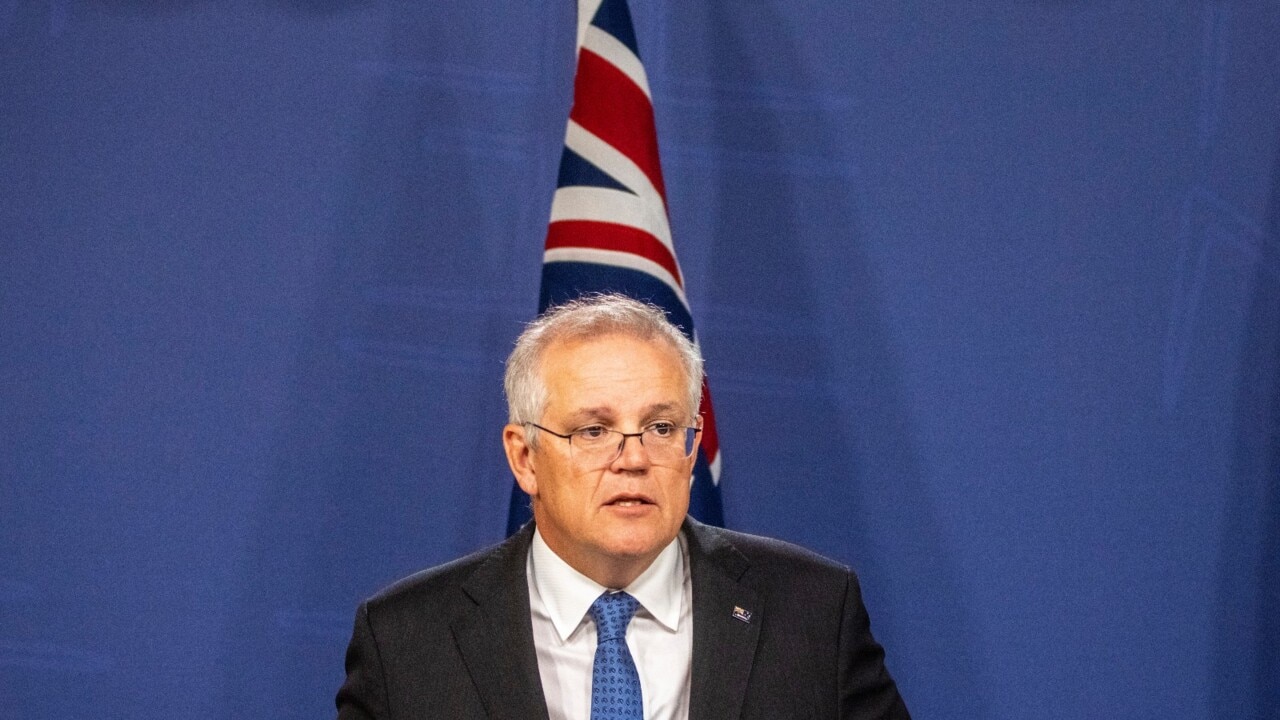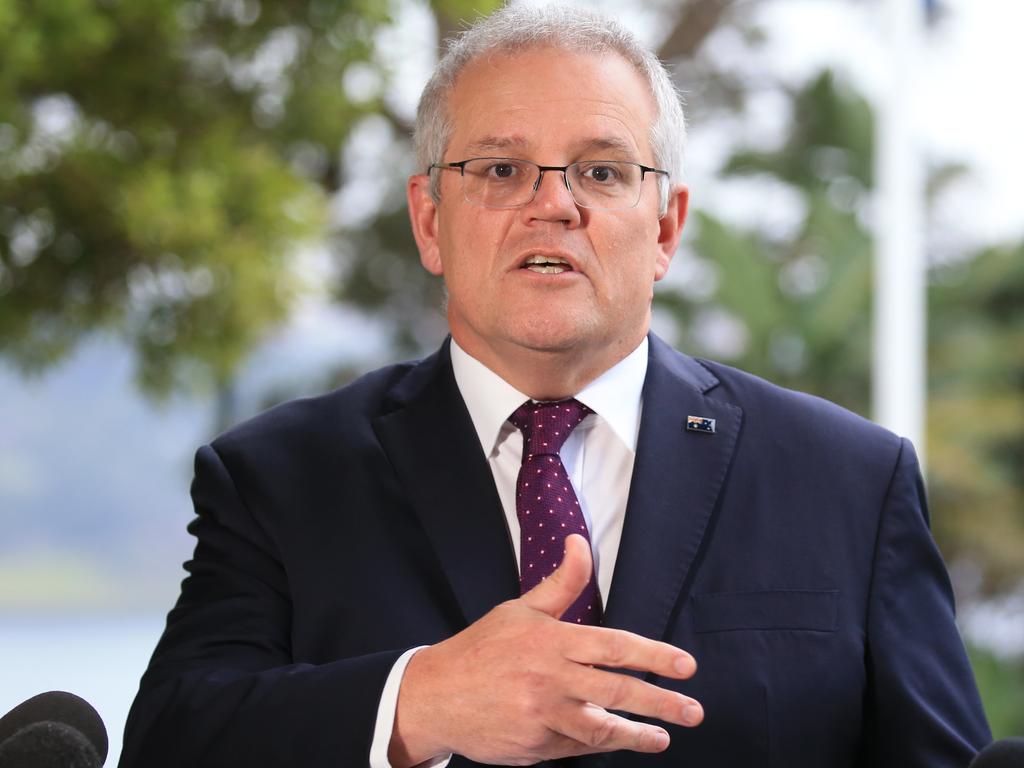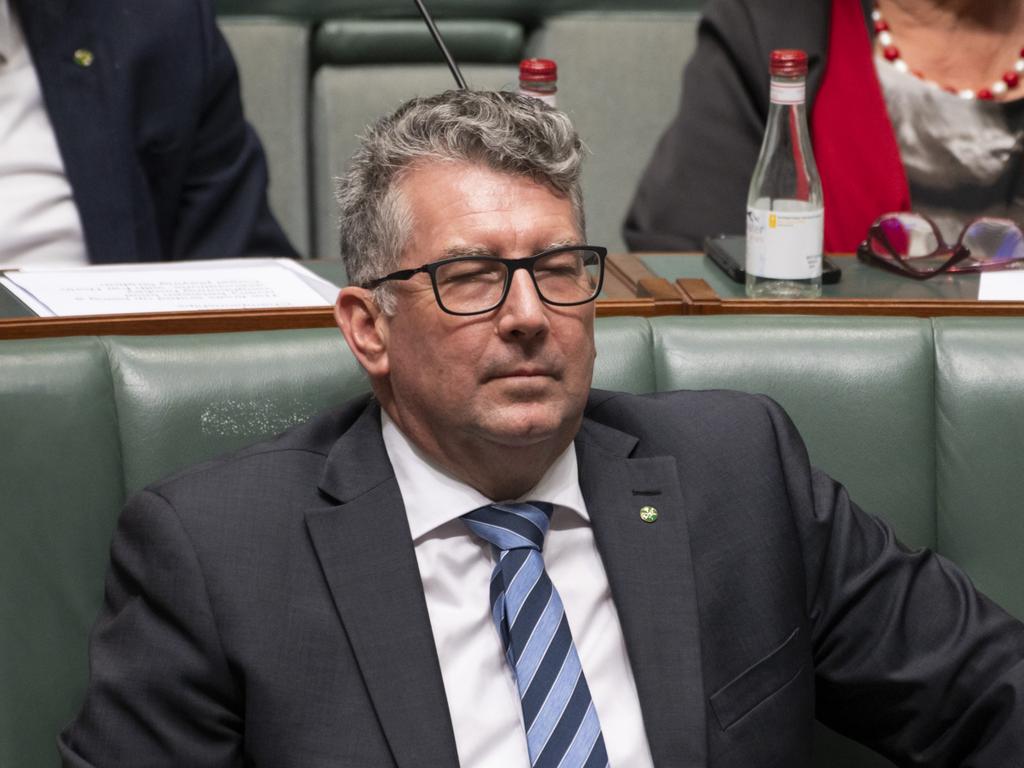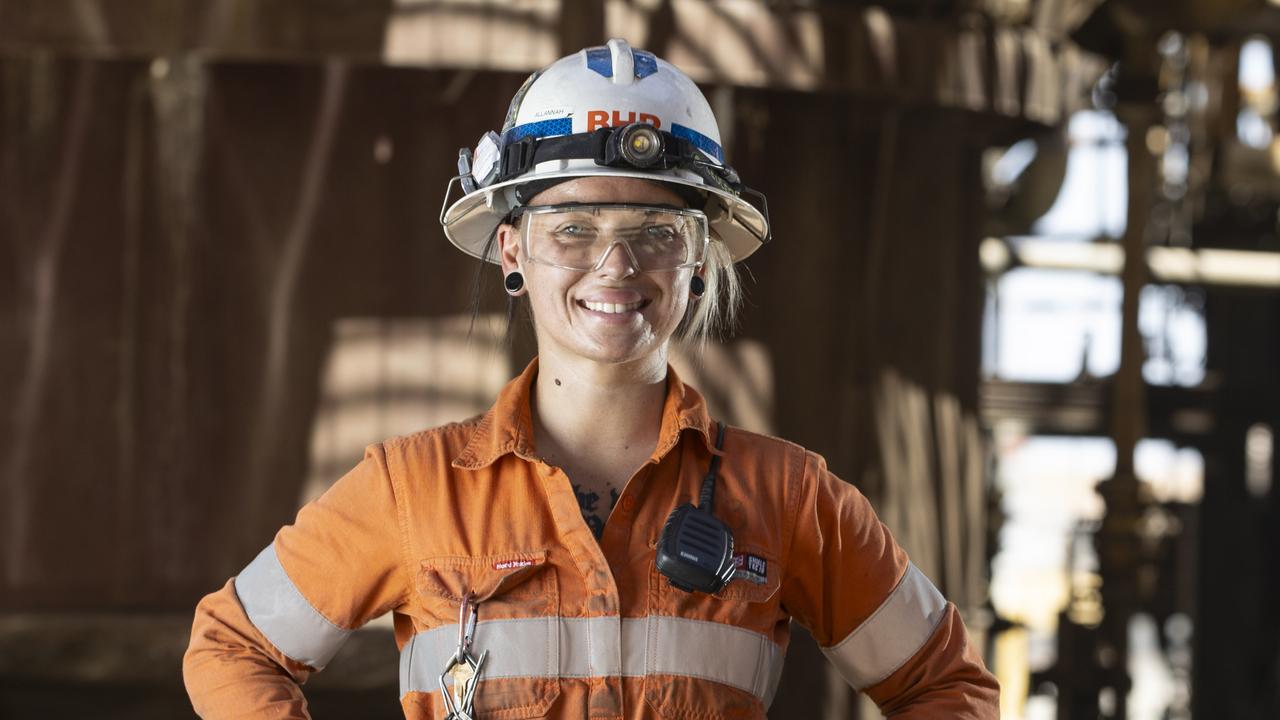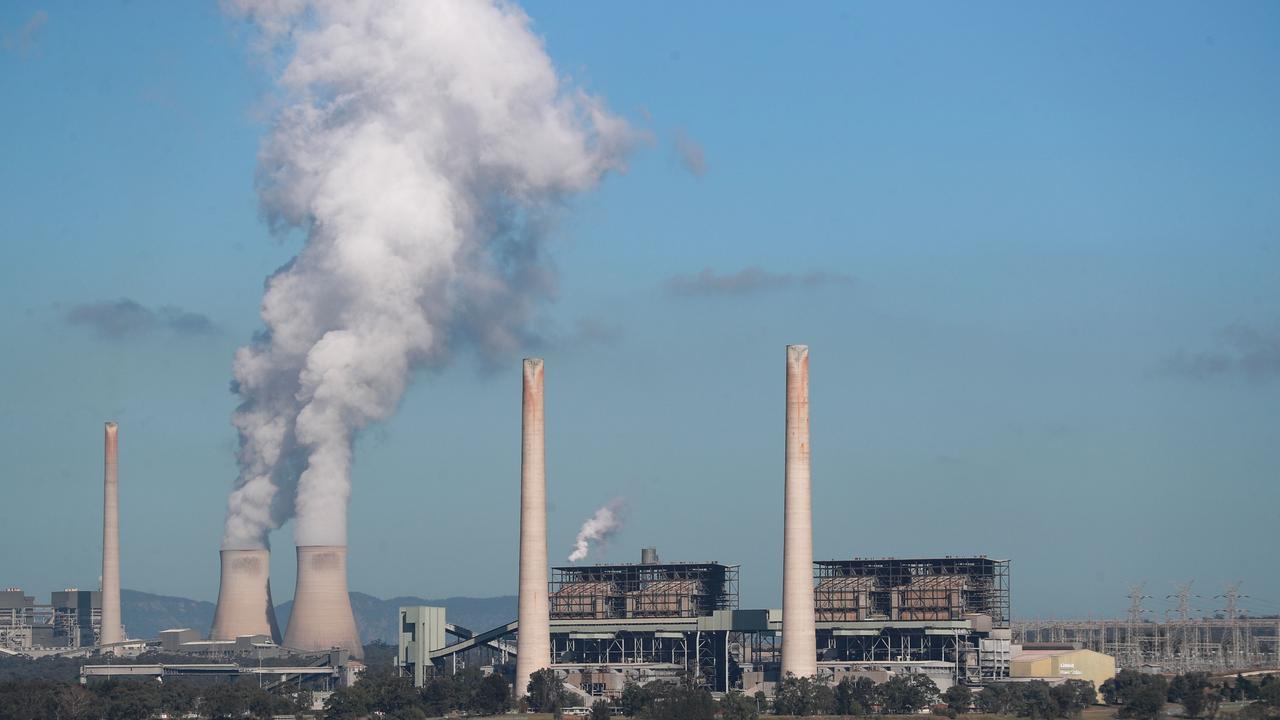Newspoll: Scott Morrison slides as women turn away
Scott Morrison has suffered a 10-point slide in his Newspoll approval rating led by women and resource-state voters.
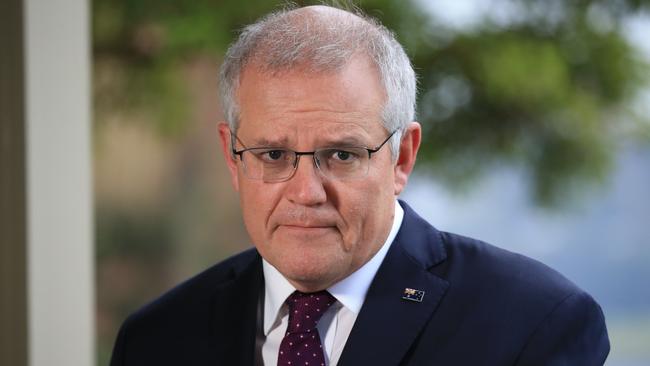
Scott Morrison has suffered a 10-point slide in his approval rating led by women and resource-state voters as the election contest is reshaped by pandemic politics, the management of Australia’s economic recovery and future vaccine supply.
An analysis of Newspoll surveys conducted between April 21 and June 26 puts the Coalition and Labor on an even electoral footing, with Greens preferences pushing the ALP to a 51-49 per cent lead despite the party lagging the government on primary support by 36-41 per cent.
Nationally, the Prime Minister’s net approval rating has been pulled down by nearly 10 points from 27 per cent to 18 per cent.
Anthony Albanese, however, has not escaped unscathed – the Opposition Leader’s net approval rating also tumbled a further three points into negative territory at -6 per cent.
Despite the women problem facing the Coalition, Mr Morrison still enjoys a lead of 27 points over Anthony Albanese as the preferred leader of female voters in this nation.
NSW has emerged as the key battleground where the next poll can be won or lost, with the parties tied 50-50 after preferences.
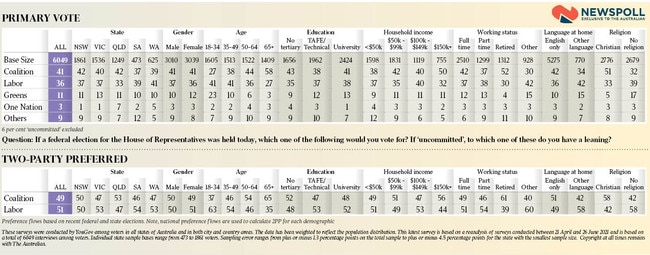
The Coalition also faces the risk of extended lockdowns fuelling a voter backlash in key seats it must win along the NSW south coast and in the state’s northern mining communities.
While the bulk of Australians overwhelmingly support Mr Morrison as a superior leader to Mr Albanese, he has suffered a statistically significant drop in his approval rating across all jurisdictions, with Queensland and WA leading the trend.
Mark McGowan in Western Australia and Annastacia Palaszczuk in Queensland have emerged as the premiers most outspoken in their criticism of Mr Morrison. Both have held near-daily press conferences and frequently challenged Mr Morrison’s leadership during the Covid-19 pandemic.
Queensland chief medical officer Jeannette Young accused Mr Morrison earlier this month of endangering the lives of young Australians by urging them to consult their GPs about taking the AstraZeneca jab, arguing that this could lead to the deaths of 18-year-olds.
Amid the heightened tensions, Mr Morrison’s standing in both WA and Queensland has slumped when compared to the last analysis covering the period January 27 and March 27.
In Queensland, the only jurisdiction where the Coalition leads the Labor Party after preferences, the Prime Minister’s approval rating plunged from 35 per cent to 20 per cent.
In WA, it sank from 37 per cent to 22 per cent.
The slump in Mr Morrison’s approval rating has been driven by both men and women, but there are greater numbers of female voters who have grown dissatisfied with the Prime Minister.
Mr Morrison’s net approval rating among women earlier this year was running at 27 per cent compared with -3 per cent for Mr Albanese, but that has now corrected.
The latest analysis shows it running at 15 per cent compared with -5 per cent for Mr Albanese.
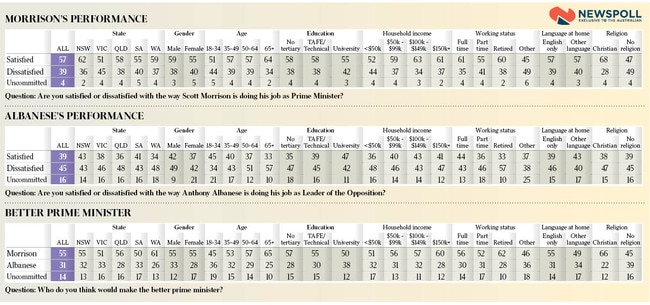
The recalibration follows criticism that the Prime Minister failed to grasp the political import of entrenched gender and cultural inequities after former Liberal staffer Brittany Higgins came forward with allegations that she had been raped inside Parliament House in 2019.
Former attorney-general Christian Porter also faced allegations, first published by the ABC, that he had raped a woman when they were both teenagers in 1988.
The public broadcaster has since admitted it could not prove the allegations to a civil or criminal standard and they have been denied by Mr Porter, who is now serving as the Minister for Industry, Science and Technology.
Last week, former Liberal turned independent MP Julia Banks accused the Prime Minister of silencing her and being a “menacing controlling wallpaper” as she promoted her new memoir, which also details a claim that a cabinet minister had sexually harassed her by feeling up the inside of her thigh.
“He (Mr Morrison) wanted me silenced,” Ms Banks told the ABC’s 7:30 report.
“He wanted me to be quiet … I mean, he wanted me out of the country.”
But it is Mr Albanese who faces a major challenge in bridging the divide with the Prime Minister to win over both females and males as he ramps up his pitch ahead of the next election.
Mr Albanese’s vote remains narrowly tied to young Australians, atheists, migrants, low-income earners and women.
By contrast, 50 per cent or more of all Christians, retirees and Australians on annual incomes of more than $150,000 – all major demographic groupings – say they will vote for the Coalition.
The government has also sought to neutralise traditional Labor lines of attack over the past three months by handing down a big-spending budget that prioritised ongoing stimulus, with $96bn being flushed back into the economy.
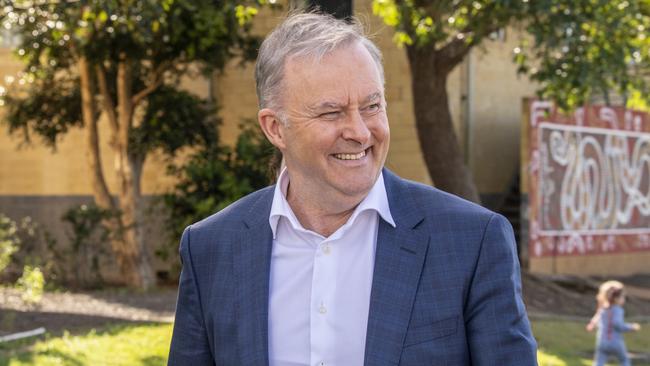
This included $28bn in tax breaks and $68bn in new spending that went towards the NDIS, aged care and extra support for women as well as childcare.
Spending as a proportion of GDP was revealed in the budget papers to be running at more than 26 per cent in 2024-25 – still higher than during the peak of the global financial crisis.
On a state-by-state basis, the political contest takes place amid a spate of damaging lockdowns imposed by the premiers, which have already cost the national economy $5bn this year.
After preferences are distributed, the Coalition is ahead of Labor only in the state of Queensland, where it enjoys a lead of 53 per cent to 47 per cent.
The ALP faces an uphill fight in Queensland, where it must win back seats to help it take government. It currently holds just six out of a total of 30 federal electorates in the state.
Labor has retained its lead over the Coalition after preferences in WA, South Australia and Victoria, although Mr Morrison has huge leads in all of these jurisdictions as preferred prime minister by 61 per cent to 26 per cent, 50 per cent to 33 per cent and 51 per cent to 33 per cent respectively.
In NSW, Mr Morrison has suffered a drop in approval from 32 per cent to 26 per cent but remains the preferred prime minister over Mr Albanese by a margin of 55 per cent to 32 per cent.
More Coverage
